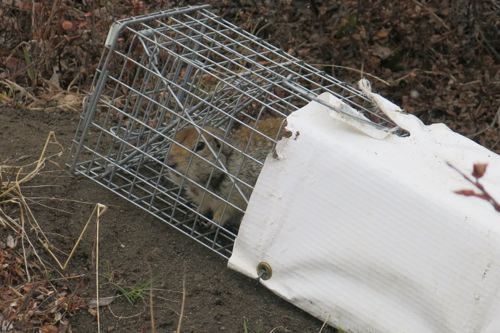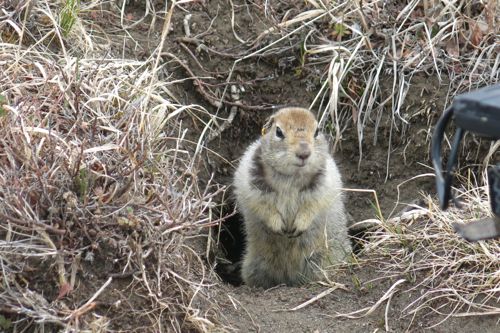The "phase shift" experiment we are conducting with arctic ground squirrels is essentially like bad jet lag. When a person flies somewhere in a different time zone, their body's internal clock remains set in the home time zone. You could say their circadian (24 hour) clock is out of sync with the surrounding daylight.

Humans (and other mammals) normally use the sun as a cue to reset their clocks. In the arctic, this basic cue is absent. The male ground squirrels we have captured have been placed under artificial lights. Each day, the lights are set to turn on one hour earlier than the previous day. Unfortunately, that means we also have to get up one hour earlier each day to feed and take of the squirrels. I wonder what this experiment is going to do to our circadian clocks?
After one week here, I am finally getting used to a regular schedule of sleeping. Though it is light outside, when my watch says it is late, I close up my tent and go to sleep. That way I will be ready for work the next day. Essentially, I am setting my circadian clock behaviorally-going to sleep in a dark place with the help of my watch. Without a watch, or any other cue like the sun, humans normally will, stay up about an hour later each day. Our biological clock is said to "free run" without any outside cues. Instead of an perfect 24 hour rhythm, our clock runs about 25 hours per day.

After 2 weeks of phase shifting the squirrel's biological clocks, they will be released and monitored. Are there benefits for the squirrels to only be active during normal daylight hours? Do they save energy if active during the warmest part of the day? How long wil it take to resume the normal circadian rhythm in the absence of the sun as a cue? These are a few of the questions we hope to answer.




Comments